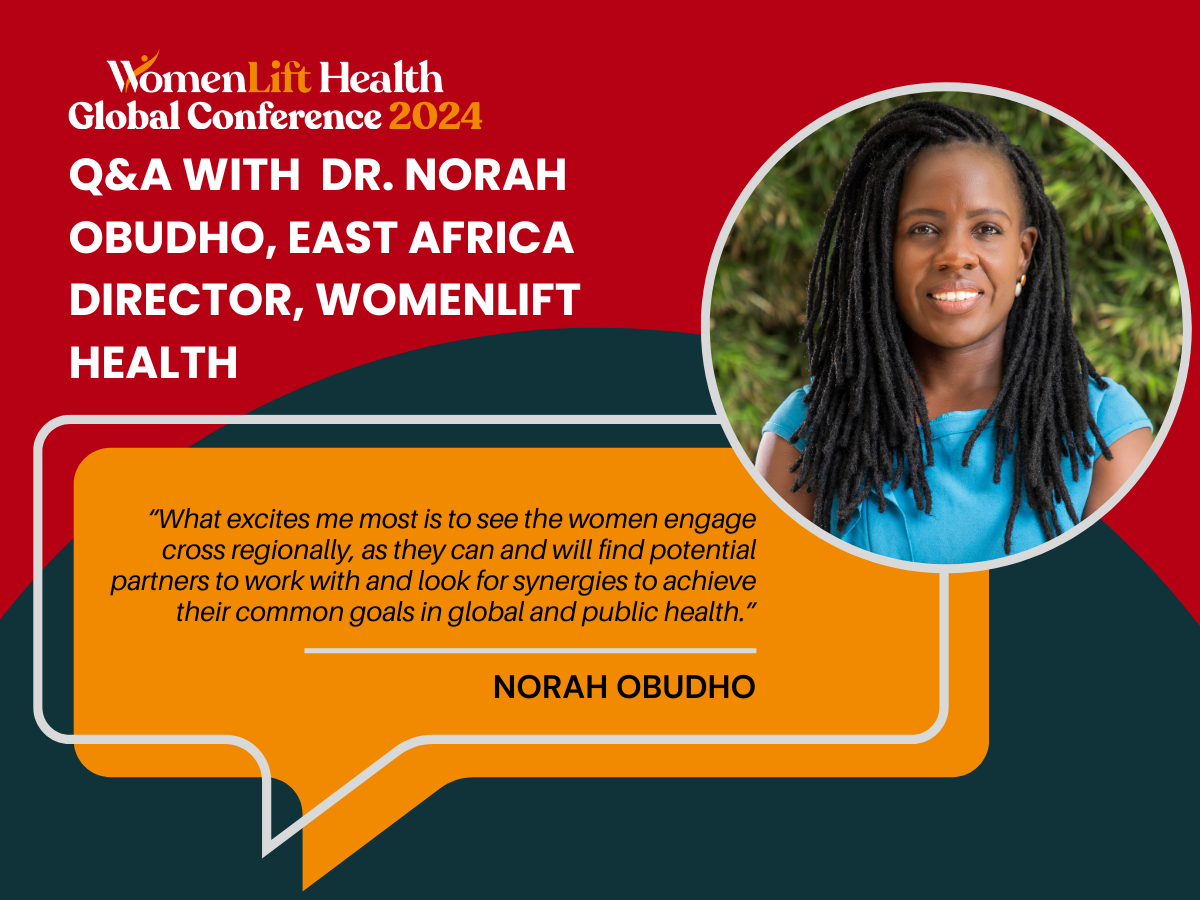As anticipation builds for the WomenLift Health Global Conference 2024, WomenLift’s health East Africa Director Norah Obudho, shares her insights and excitements about the WomenLift Health Global Conference 2024.
Three words regarding your expectations for the conference?
I am expecting to see all the transformative action in relearning, networking, and movement building centered on Women’s leadership!
When thinking of women’s leadership in Africa, what are some of the challenges and opportunities for women in health leadership?
When I think of women’s leadership in Africa and particularly in health, I see Africa achieving health for all, I see equal pay for all health cadres, and I see safe and inclusive workspaces. This is all about the value proposition of women’s leadership and women’s representation in all decision-making spaces. Women’s leadership encompasses the household and community approach and is inclusive and collaborative. This is an obvious win for the continent. The challenges women continue to face include unsafe and non-inclusive workspaces both in the formal and informal sectors that includes unequal pay/no pay, workspaces not designed for women to thrive in and support in leadership.
There is always value in cross regional learning. What excites you the most about the prospect of having women from the East Africa region actively engaged in discussions and collaborations during the conference?
What excites me most is to see the women engage cross regionally as they can and will find potential partners to work with and look for synergies to achieve their common goals in global and public health. They will strengthen their networks which will foster learning continuums through cross-sector, cross cadre, cross-country and cross-regional collaborations.
As the East Africa Region Director, could you share your vision for the impact this conference could have on advancing gender equity and empowering women in health leadership roles within East Africa, and Africa at large?
My vision is that all parties engaging in this conference will reimagine leadership and look inwards to encompass transformative leadership in themselves and institutions that they serve. That we must invest in women’s leadership, we must invest in our institutions to make workspaces safe and inclusive for both women and men and finally to challenge the sociocultural norms that remain as barriers to women’s advancement.
Given the stage, what is that one message you would pass to your fellow women leaders?
We are the missing ingredient in achieving health for all!


